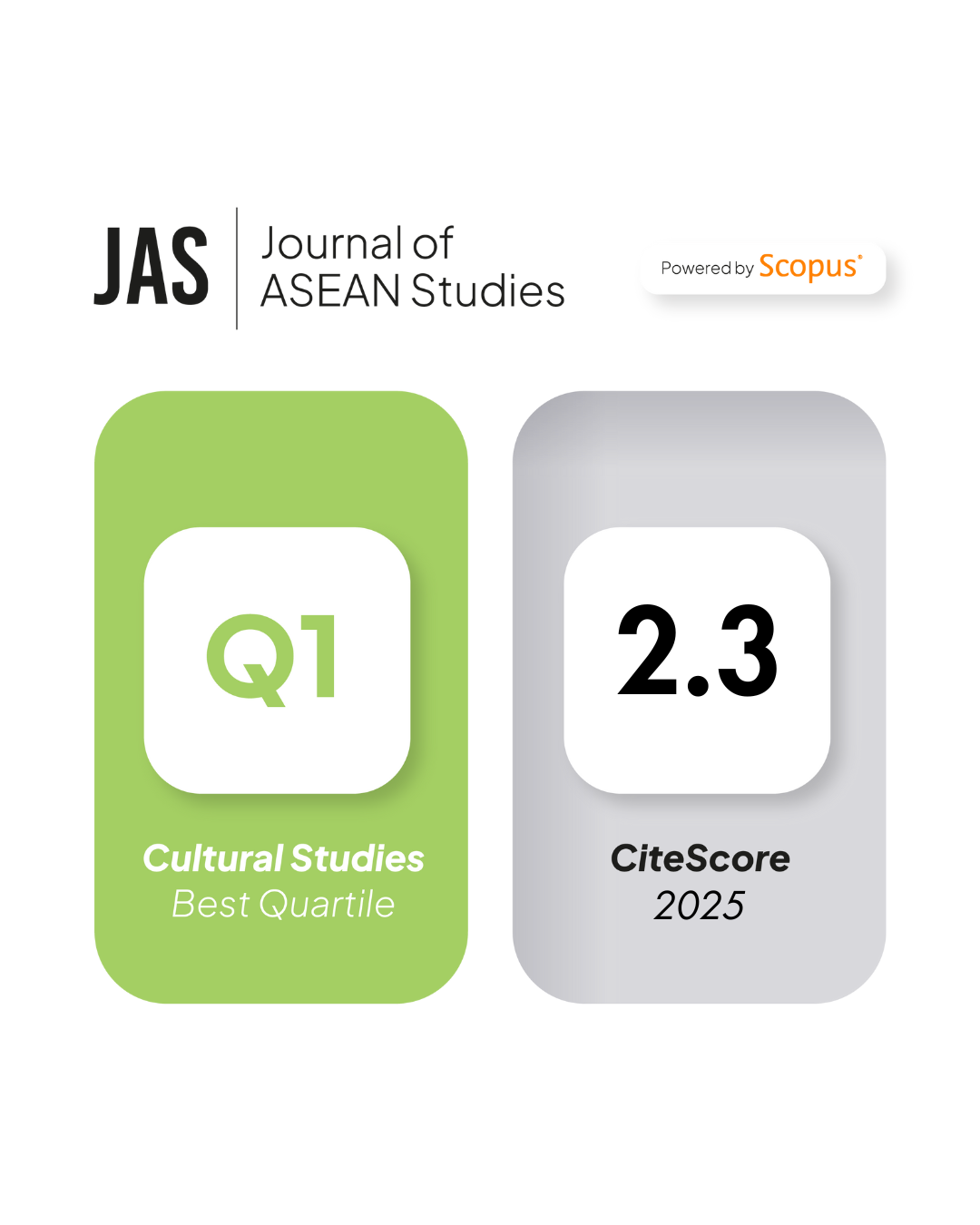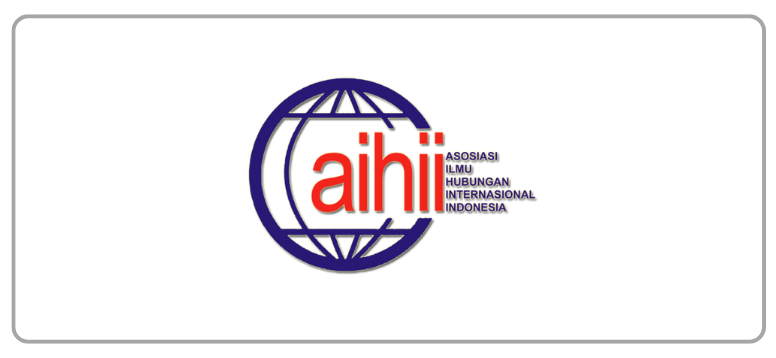Understanding Sustainability-oriented Innovation (SOI) Using Network Perspective in Asia Pacific and ASEAN: A Systematic Review
DOI:
https://doi.org/10.21512/jas.v7i1.5756Keywords:
sustainability-oriented innovation, actor network perspective, actor-network theory, Asia Pacific, ASEANAbstract
Sustainability-oriented innovation (SOI) is particular type of innovation that is not only economically oriented, but also environmental- and social benefits-oriented. SOI is now being widely discussed due to the increasing environmental and social problems that accompany various innovations around the world. In this paper we conducted a systematic review of empirical literature regarding SOI in the Asia Pacific region, which were discussed through network perspectives. For network perspectives, researchers focused on process view to explain how SOI is mobilised and practised throughout different social, institutional, and political contexts. We chose the Asia Pacific as the context because the region is the most dynamic part of the global economy, with ASEAN being the prominent parts of it. In conducting the review, we used the Tranfield, Denyer, & Smart's protocol (2003) to ensure its rigorousness. The search focused on the academic database of Scopus with specific inclusion and exclusion criteria. The results show that SOI has been rapidly developing into practices in countries in the Asia Pacific, not only in profit sectors, but also in non-profit sectors such as government and community. Our review emphasised that actor-network theory (ANT) emerged as the currently most adopted framework to explain the dynamics process of SOI mobilisations and practices in the Asia Pacific region. ANT frameworks contribute to defining the structure of SOI networks as well as identifying social, institutional, and political challenges of SOI implementation. Regionally, the focus of the study so far is in North America (US and Canada), while studies in ASEAN are still very limited.
References
Acciaro, M., Vanelslander, T., Sys, C., Ferrari, C., Roumboutsos, A., Giuliano, G., … Kapros, S. (2014). Environmental sustainability in seaports: a framework for successful innovation. Maritime Policy and Management, 41(5), 480–500. http://doi.org/10.1080/03088839.2014.932926.
Adams, R., Jeanrenaud, S., Bessant, J., Denyer, D., & Overy, P. (2016). Sustainability-oriented Innovation: A Systematic Review. International Journal of Management Reviews, 18(2), 180–205.
Aka, K. G. (2019). Actor-network theory to understand , track and succeed in a sustainable innovation development process. Journal of Cleaner Production, 225, 524–540. http://doi.org/10.1016/j.jclepro.2019.03.351.
Albrecht, J. N. (2013). Networking for sustainable tourism - towards a research agenda. Journal of Sustainable Tourism, 21(5), 639–657. http://doi.org/10.1080/09669582.2012.721788.
APEC. (2019, June 7). APEC Member Economies. Retrieved from www.apec.org
ASEAN. (2012). Economic Achievement - ASEAN.
ASEAN. (2019). ASEAN Member States.
Batty, M. (2005). Cities and Complexity: Understanding Cities with Cellular Automata, Agent-Based Models, and Fractals. Cambridge: MIT Press.
Boelens, L. (2010). Theorizing practice and practising theory: Outlines for an actor-relational-approach in planning. Planning Theory, 9(1), 28–62. http://doi.org/10.1177/1473095209346499.
Boonstra, B., & Boelens, L. (2011). Self-organization in urban development: Towards a new perspective on spatial planning. Urban Research and Practice, 4(2), 99–122. http://doi.org/10.1080/17535069.2011.579767.
Byrne, D. (2003). Complexity Theory and Planning Theory: A Necessary Encounter. Planning Theory, 2(3), 171–178.
Caniglia, B., Frank, B., Kerner, B., & Mix, T. L. (2016). Water Policy And Governance Networks: A Pathway To Enhance Resilience Toward Climate Change. Sociological Forum, 31, 828–845. http://doi.org/10.1111/socf.12275.
Caron, M.-A., & Turcotte, M.-F. B. (2009). Path dependence and path creation: Framing the extra-financial information market for a sustainable trajectory. Accouting, Auditing & Accountability, 22(2), 272–297. http://doi.org/10.1179/str.2009.56.4.005.
Chen, H. W., & Lin, F. R. (2018). Evolving obligatory passage points to sustain service systems: The case of traditional market revitalization in Hsinchu City, Taiwan. Sustainability (Switzerland), 10(7). http://doi.org/10.3390/su10072540.
Chen, P. C., & Hung, S. W. (2016). An actor-network perspective on evaluating the R&D linking efficiency of innovation ecosystems. Technological Forecasting and Social Change, 112, 303–312. http://doi.org/10.1016/j.techfore.2016.09.016.
Cornell University, INSEAD, & WIPO. (2018). Global Innovation Index 2018: Energizing the World with Innovation.
De Medeiros, J. F., Ribeiro, J. L. D., & Cortimiglia, M. N. (2014). Success factors for environmentally sustainable product innovation: A systematic literature review. Journal of Cleaner Production, 65, 76–86. http://doi.org/10.1016/j.jclepro.2013.08.035.
De Roo, G., & Silva, E. A. (2010). A Planner’s Encounter with Complexity. Burlington: Ashgate Publishing Company.
Farías, I. (2011). The politics of urban assemblages. City, 15(3–4), 365–374. http://doi.org/10.1080/13604813.2011.595110.
Garud, R., & Gehman, J. (2012). Metatheoretical perspectives on sustainability journeys: Evolutionary, relational and durational. Research Policy, 41(6), 980–995. http://doi.org/10.1016/j.respol.2011.07.009.
Garud, R., Gehman, J., Kumaraswamy, A., & Tuertscher, P. (2017). From the Process of Innovation to Innovation as Process. The SAGE Handbook of Process Organization Studies, (January), 451–465. http://doi.org/10.4135/9781473957954.n28.
Ghisetti, C., & Rennings, K. (2014). Environmental innovations and profitability: How does it pay to be green? An empirical analysis on the German innovation survey. Journal of Cleaner Production, 75, 106–117. http://doi.org/10.1016/j.jclepro.2014.03.097.
Giesler, M. (2012). How Doppelgänger Brand Images Influence the Market Creation Process: Longitudinal Insights from the Rise of Botox Cosmetic. Journal of Marketing, 76(6), 55–68. http://doi.org/10.1509/jm.10.0406.
Goulden, S., Erell, E., Garb, Y., & Pearlmutter, D. (2017). Green building standards as socio-technical actors in municipal environmental policy. Building Research and Environment, 45(4), 414–425.
Hansen, E. G., & Große-Dunker, F. (2013). Sustainability-Oriented Innovation. In Encyclopedia of Corporate Social Responsibility (pp. 2407–2417). Springer-Verlag Berlin Heidelberg.
Hinkelman, D., & Gruba, P. (2012). Power Within Blended Language Learning Programs in Japan. Language Learning & Technology, 16(2), 46–64.
Holden, M. (2008). Social learning in planning: Seattle’s sustainable development codebooks. Progress in Planning, 69(1), 1–40. http://doi.org/10.1016/j.progress.2007.12.001.
IMF. (2018). Regional Economic Outlook: Asia Pacific.
Johnson, W. H. A. (2008). Roles, resources and benefits of intermediate organizations supporting triple helix collaborative R&D: The case of Precarn. Technovation, 28(8), 495–505. http://doi.org/10.1016/j.technovation.2008.02.007.
Kadia Georges Aka. (2019). Actor-network theory to understand, track and succeed in a Sustainable Innovation Development Process. Journal of Cleaner Production, 225, 524–540. http://doi.org/10.1016/j.jclepro.2019.03.351.
Latour, B. (2005). Reassembling the Social: An Introduction to Actor-Network Theory. Oxford: Oxford University Press.
Lin, R. J., Tan, K. H., & Geng, Y. (2013). Market demand, green product innovation, and firm performance: Evidence from Vietnam motorcycle industry. Journal of Cleaner Production, 40, 101–107. http://doi.org/10.1016/j.jclepro.2012.01.001.
Lowndes, V. (2009). New Institutionalism and Urban Politics. In J. S. Davies & D. L. Imbroscio (Eds.), Theories of Urban Politics (2nd ed., pp. 91–99). London: SAGE Publications Ltd.
Lynch, J., Eilam, E., Fluker, M., & Augar, N. (2017). Community-based environmental monitoring goes to school: translations, detours and escapes. Environmental Education Research, 23(5), 708–721. http://doi.org/10.1080/13504622.2016.1182626.
Mallett, A., & Cherniak, D. (2018). Views from above: policy entrepreneurship and climate policy change on electricity in the Canadian Arctic. Regional Environmental Change, 18(5), 1323–1336. http://doi.org/10.1007/s10113-018-1317-7.
Martiskainen, M. (2017). The role of community leadership in the development of grassroots innovations. Environmental Innovation and Societal Transitions, 22, 78–89. http://doi.org/10.1016/j.eist.2016.05.002.
McCalman, J., Bainbridge, R., Brown, C., Tsey, K., & Clarke, A. (2018). The Aboriginal Australian Family Wellbeing Program: A Historical Analysis of the Conditions That Enabled Its Spread. Frontiers in Public Health, 6(March). http://doi.org/10.3389/fpubh.2018.00026.
McKinsey, & Vanthournout, H. (2008). How companies think about climate change: A McKinsey Global Survey. McKinsey Quarterly, 2(December), 46.
Milton, C. C. (2003). Innovating Conservation Agriculture: The Case of No-Till Cropping. Rural Sociology, 68(2), 278–304.
Morioka, T., Saito, O., & Yabar, H. (2006). The pathway to a sustainable industrial society – initiative of the Research Institute for Sustainability Science (RISS) at Osaka University. Sustainability Science, 1(1), 65–82. http://doi.org/10.1007/s11625-006-0008-3.
Parlee, C. E., & Wiber, M. G. (2018). Using conflict over risk management in the marine environment to, 23(4).
Prakash, A., & Isono, I. (2012). ASEAN in the Global Economy – An Enhanced Economic and Political Role. ERIA Policy Brief, 01, 1–12, via ERIA.
RobecoSAM. (2018). Country Sustainability Ranking Update - June 2018.
Rydin, Y. (2012). Using Actor – Network Theory to understand planning practice : Exploring relationships between actants in regulating low-carbon commercial development. http://doi.org/10.1177/1473095212455494
Rydin, Y., & Tate, L. (2016). Actor Networks of Planning. London: Routledge.
Sage, D., Dainty, A., & Brookes, N. (2011). How actor-network theories can help in understanding project complexities. International Journal of Managing Projects in Business, 4(2), 274–293. http://doi.org/10.1108/17538371111120243.
Stephens, J. C., & Jiusto, S. (2010). Assessing innovation in emerging energy technologies: Socio-technical dynamics of carbon capture and storage (CCS) and enhanced geothermal systems (EGS) in the USA. Energy Policy, 38(4), 2020–2031. http://doi.org/10.1016/j.enpol.2009.12.003.
Tang, J. W., Chen, M. L., & Chiu, T. H. (2018). An exploratory study on local brand value development for Outlying Island Agriculture: Local food system and actor-network theory perspectives. Sustainability (Switzerland), 10(11). http://doi.org/10.3390/su10114186.
Tatarynowicz, A., Sytch, M., & Gulati, R. (2016). Environmental Demands and the Emergence of Social Structure: Technological Dynamism and Interorganizational Network Forms*. Administrative Science Quarterly, 61(1), 52–86. http://doi.org/10.1177/0001839215609083.
Tranfield, D., Denyer, D., & Smart, P. (2003). Towards a methodology for developing evidence-informed management knowledge by means of systematic review. British Journal of Management, 14, 207–222. http://doi.org/10.1111/1467-8551.00375.
Tseng, M. L., Chiu, A. S. F., Tan, R. R., & Siriban-Manalang, A. B. (2013). Sustainable consumption and production for Asia: Sustainability through green design and practice. Journal of Cleaner Production, 40, 1–5. http://doi.org/10.1016/j.jclepro.2012.07.015.
Tseng, M. L., Wang, R., Chiu, A. S. F., Geng, Y., & Lin, Y. H. (2013). Improving performance of green innovation practices under uncertainty. Journal of Cleaner Production, 40, 71–82. http://doi.org/10.1016/j.jclepro.2011.10.009.
Unilever. (2017). Report shows a third of consumers prefer sustainable brands.
Vicsek, L., Király, G., & Kónya, H. (2016). Networks in the Social Sciences. Corvinus Journal of Sociology and Social Policy, 7(2), 77–102. http://doi.org/10.14267/CJSSP.2016.02.04.
Whiteman, G., & Kennedy, S. (2016). Sustainability as process. The SAGE Handbook of Process Organization Studies, 417.
Xavier, A. F., Naveiro, R. M., Aoussat, A., & Reyes, T. (2017). Systematic literature review of eco-innovation models: Opportunities and recommendations for future research. Journal of Cleaner Production, 149, 1278–1302. http://doi.org/10.1016/j.jclepro.2017.02.145.
Yates, R., & Beeson, M. (2019). Understanding ASEAN ’s Role in Asia-Pacific Order. Palgrave Macmillan UK.






















